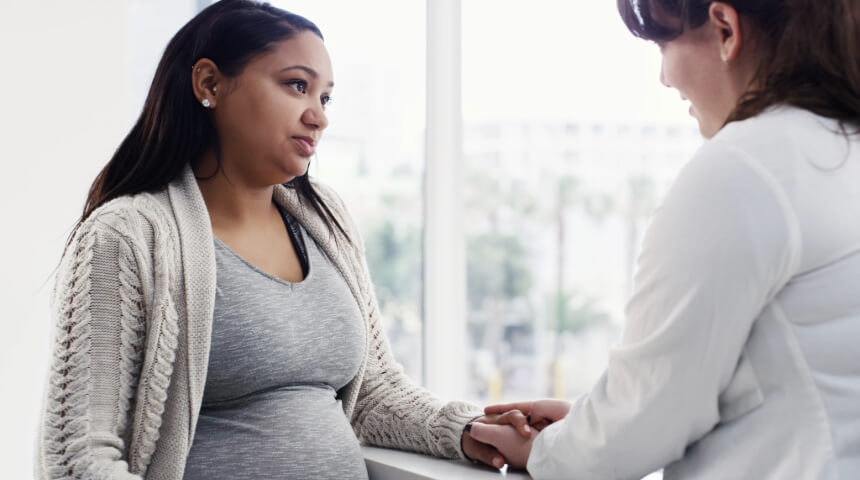Kidney Stones: Pregnancy's Secret Side Effect
You know about the morning sickness, weight gain and fatigue, but did you know it’s also possible to develop kidney stones during pregnancy?
The kidneys remove waste and fluid from your blood to form urine. This includes calcium, oxalate and uric acid, which can crystallize. If there’s excess waste and too little fluid in your blood to flush out these substances, they can grow larger and form kidney stones.
Risk Factors During Pregnancy
Although pregnant women aren’t more at risk of kidney stones, certain pregnancy factors play a role in their formation. Some of these include:
-
Elevated vitamin D levels, which raise urinary calcium. Excess calcium increases the risk of kidney stones.
-
Increased magnesium and citrate levels, which can offset the formation of stones.
Tricky Diagnosis
The most common symptom of kidney stones is severe pain called renal colic. It may vary in duration and is normally felt in the side of the body or middle of the back, depending on the size of the stone.
Since the kidneys, bladder and ureter need to be examined for kidney stone diagnosis, CT scans often are the gold standard. Radiation, which is used during a CT scan, isn’t recommended during pregnancy, so diagnosing stones in pregnant women can be difficult.
A renal ultrasound, including the kidneys and bladder, is typically used for pregnant women instead. This is done to check for a backup of fluid or kidney swelling and to make sure the kidney can still pass urine into the bladder
But an ultrasound isn’t foolproof, either. The baby may be sitting on the ureter, which can cause a backup of fluid into the kidneys. Ultrasound also misses most of the ureter (the tube that connects the kidney to the bladder), which is where most stones that cause pain are found.
Managing and Treating Kidney Stones
When treatment is necessary, conservative options are used in pregnant women to prevent complications.
For example, surgery to remove stones isn’t recommended during the first or third trimesters as it may increase the risk of spontaneous abortion and premature delivery, respectively. If surgery is necessary, it's usually performed during the second trimester through the urethra.
Procedures to remove stones are harder to navigate in pregnant women as the use of X-rays is limited. An ultrasound may be used instead, which isn’t as accurate.
And anesthesia during pregnancy comes with its own set of risks to mother and fetus. The recommendation for surgery during pregnancy is determined by the severity and urgency of the situation.
Although kidney stones are uncomfortable and painful, they can be successfully treated. Fortunately, up to 80 percent of kidney stones in pregnant women pass on their own, but here are some things you can do to ease any discomfort:
-
Drink plenty of water to ensure you are adequately hydrated. This helps you pass stones more easily and prevents new stones from forming.
-
Use pain medication prescribed by your doctor to ease renal colic.
Talk to your doctor before trying any kidney stone remedies, particularly if you're pregnant. Visit the emergency room immediately and consult a urologist if you experience nausea, vomiting, fever, chills or blood in your urine along with persistent pain.



